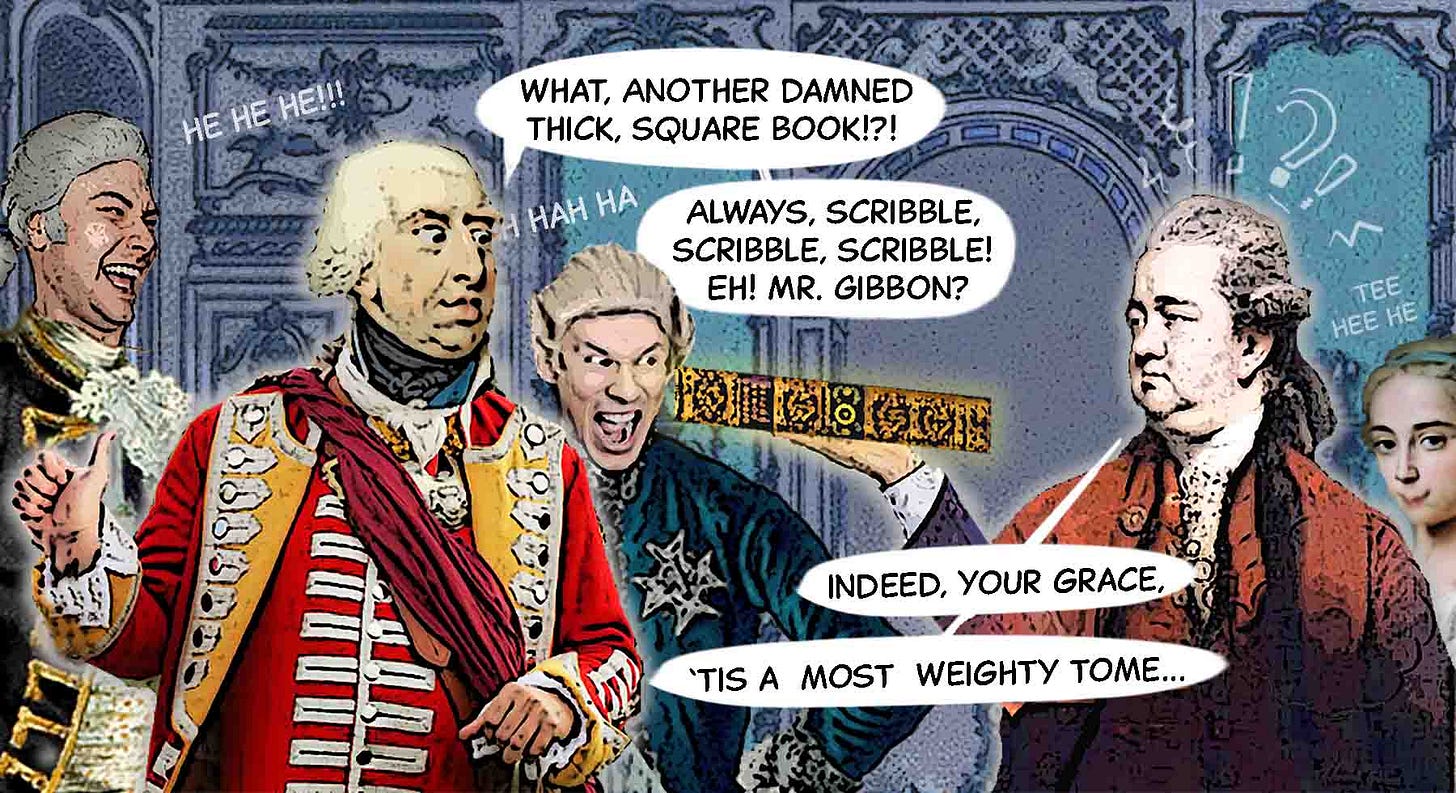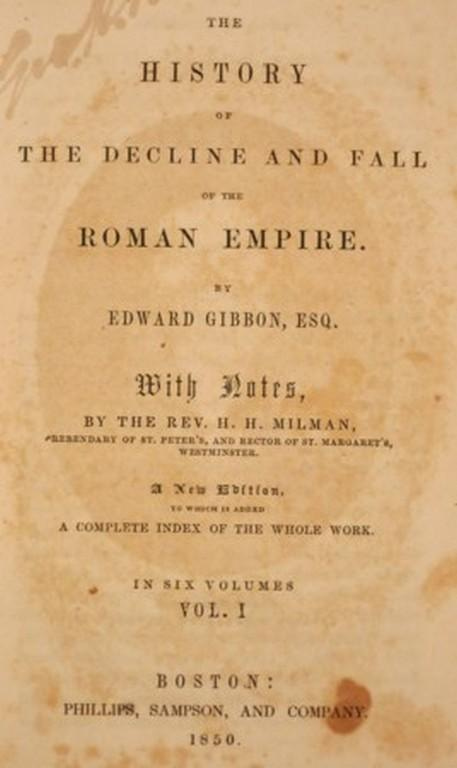"Always scribble, scribble, scribble..."
“Another d-mn’d thick, square book! Always, scribble, scribble, scribble! Eh! Mr. Gibbon?'”
Edward Gibbon probably has low name recognition today — 228 years after his death and 248 years after the publication of the first volume of The Decline & Fall of the Roman Empire. But this moment in his life still makes me laugh:
Imagine Gibbon proudly presenting his massive first volume to the King’s brother — William, Duke of Gloucester — hoping for a boost that, in 1778, was the equivalent of a New York Times rave.
Instead, the Duke flips through a few pages and says:
“Another d***ed thick square book! Always scribble, scribble, scribble! Eh, Mr. Gibbon?”
That’s it. That’s the review.
Maybe he was drunk. Maybe he was trying to be funny. Maybe everyone laughed and Gibbon laughed with them. We don’t really know.
What hits me about the moment is what every writer knows — the sting; the fear that hundreds of hours of sincere effort might get waved off in five seconds by someone whose opinion — at that moment — matters.
So here’s the lesson I take from it:
Don’t take it so seriously — and keep going.
The world will always have a few Gloucesters. You can’t write for them.
Write anyway.
Not “scribble, scribble, scribble,” but:
Scribble. Then scribble again. And then scribble some more.
As Steven Pressfield would say: turn pro — and keep showing up.




